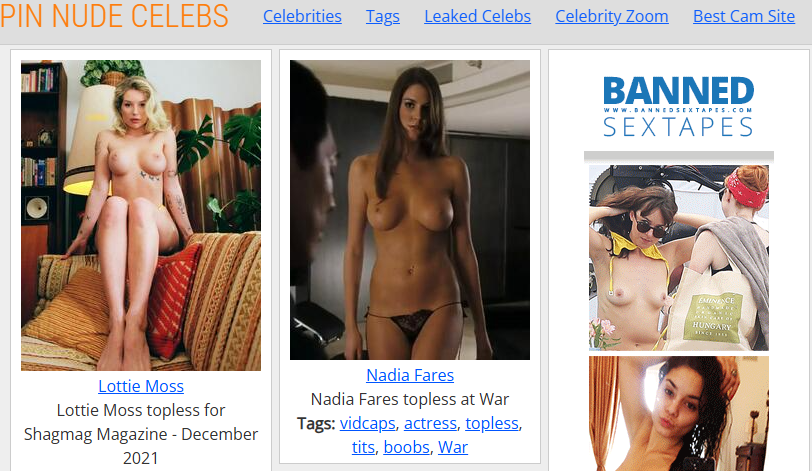When Penthouse first appeared in 1965, it was a bold, unapologetic statement about freedom — sexual, social, and creative. Its founder, Bob Guccione, envisioned a magazine that didn’t just show beauty, but celebrated intelligence and individuality. The women featured in its pages — the Penthouse Pets — were more than muses. They were personalities, innovators, and pioneers of a cultural revolution that merged erotic art with empowerment.
Half a century later, that legacy has evolved in surprising ways. Many former Penthouse Pets have turned their time in the spotlight into something far greater: businesses, brands, and personal empires that reach far beyond adult entertainment. These women redefined what it means to own your image and your ambition — proving that sensuality and entrepreneurship are not opposites, but natural allies.

The Rise of the Penthouse Woman
The Penthouse Pet of the Month title has always carried prestige, but it was never just about beauty. From the beginning, Guccione sought women with personality — creative, ambitious, and unapologetically themselves. Each feature included interviews, insights, and personal details that made every Pet memorable.
While other magazines idealized untouchable glamour, Penthouse embraced realness. The women were playful but grounded, erotic but relatable. That combination built an image of modern womanhood that was both desirable and dynamic — and that image translated into opportunity.
As the decades unfolded, those opportunities expanded. The rise of television, video, and later the internet created a space where the “Pet” identity could evolve from printed page to personal brand. And the women who recognized that potential early on turned it into power.
More Than a Title
For many models, being chosen as a Penthouse Pet became the first step toward something bigger. The magazine’s global reach meant exposure to millions of readers, fans, and industry professionals. But what truly set the Pets apart was how they used that platform.
Some leveraged their fame into acting and hosting careers; others became producers, entrepreneurs, or digital creators. A few built entire companies — from fashion lines and beauty brands to production studios and lifestyle ventures.
Their secret wasn’t just popularity — it was ownership. Penthouse gave them visibility, but they built the infrastructure around it. They learned how to market themselves, how to manage their image, and how to turn attention into influence.
Reinventing the Brand of Beauty
In an era when women in adult entertainment were often underestimated or typecast, Penthouse Pets stood out as multidimensional. They weren’t afraid to speak about art, business, or politics — a reflection of Guccione’s editorial tone, which combined erotic imagery with serious journalism.
That balance shaped how many of these women approached their careers. They saw themselves not just as models, but as entrepreneurs — self-managed, brand-aware, and media-savvy. In many ways, the modern “creator economy” owes something to that model of self-reliance.
Today’s influencers and OnlyFans entrepreneurs mirror what Penthouse Pets were doing decades earlier: controlling their image, engaging their audiences directly, and building businesses around authenticity.
From Glossy Pages to Boardrooms
Over the years, a number of former Pets have built successful companies — proof that the same charisma that draws millions of fans can also inspire business confidence.
Some turned their fame into lifestyle brands, selling fashion, skincare, or wellness products. Others launched content studios or creative agencies, mentoring younger performers and helping them navigate the business side of entertainment.
For example, several 1980s and 1990s Pets went on to run their own production companies, managing licensing deals and merchandising empires. More recently, digital-era Pets have used social platforms to launch podcasts, subscription channels, and online boutiques. They’re not waiting for opportunities — they’re creating them.
And what makes this shift remarkable is that it’s driven by the same core quality that defined Penthouse from the start: independence.
A Legacy of Self-Made Women
Bob Guccione once said that he wanted Penthouse to be a celebration of “the individual who refuses to conform.” That ethos lives on in the women who turned their pictorials into business plans.
Being a Penthouse Pet has never been just a modeling credit; it’s an identity — one that suggests confidence, ambition, and control. These women learned early how to manage publicity, negotiate contracts, and navigate the delicate balance between art and commerce.
When the internet upended the adult industry, many of them adapted faster than legacy companies. They became their own producers and distributors, long before “creator-owned” content became the standard. That adaptability — that entrepreneurial instinct — has kept the Pet legacy alive long after print faded from dominance.

Redefining Empowerment
There’s something deeply symbolic about the evolution from centerfold to CEO. It mirrors a broader cultural shift in how society views women’s agency. What once was dismissed as objectification has, in many cases, become a tool for empowerment — when the women themselves hold the reins.
Penthouse Pets understood that distinction early. They learned to turn sensuality into strategy, visibility into voice, and allure into leverage. In doing so, they helped dismantle the idea that eroticism and intelligence must exist on opposite ends of the spectrum.
That’s why their stories continue to resonate: they remind us that control over one’s image — whether in art, fashion, or business — is one of the most powerful forms of autonomy.
The Digital Generation of Pets
The new generation of Penthouse stars carries that same entrepreneurial DNA. Today’s Pets are influencers, podcasters, and brand ambassadors who build communities as much as fanbases. Their social media presence blurs the line between glamour and empowerment, between modeling and mentorship.
They use their platforms to advocate for body positivity, creative ownership, and fair representation in media. Many are redefining what a modern adult career looks like — one that merges artistry, independence, and entrepreneurship.
In the digital age, being a Penthouse Pet still means something profound. It’s not just a nod to beauty — it’s a recognition of potential. The title continues to act as a springboard for women who know how to turn visibility into value.
The Spirit of the Empire Builders
What unites all these stories is drive. The women who started as centerfolds and became CEOs share a common instinct: the refusal to be boxed in. They took the very image that once defined them and used it to open new doors — to business, to influence, and to freedom.
Their journey from glossy pages to boardrooms tells a larger story about ambition, resilience, and reinvention. Penthouse may have given them a stage, but it was their vision that built empires.
Half a century after its creation, Penthouse remains a symbol of boldness and individuality. And its Pets — the women who turned sensual fame into lasting success — continue to embody that legacy. They prove, year after year, that the real power behind the image has always belonged to the woman herself.


